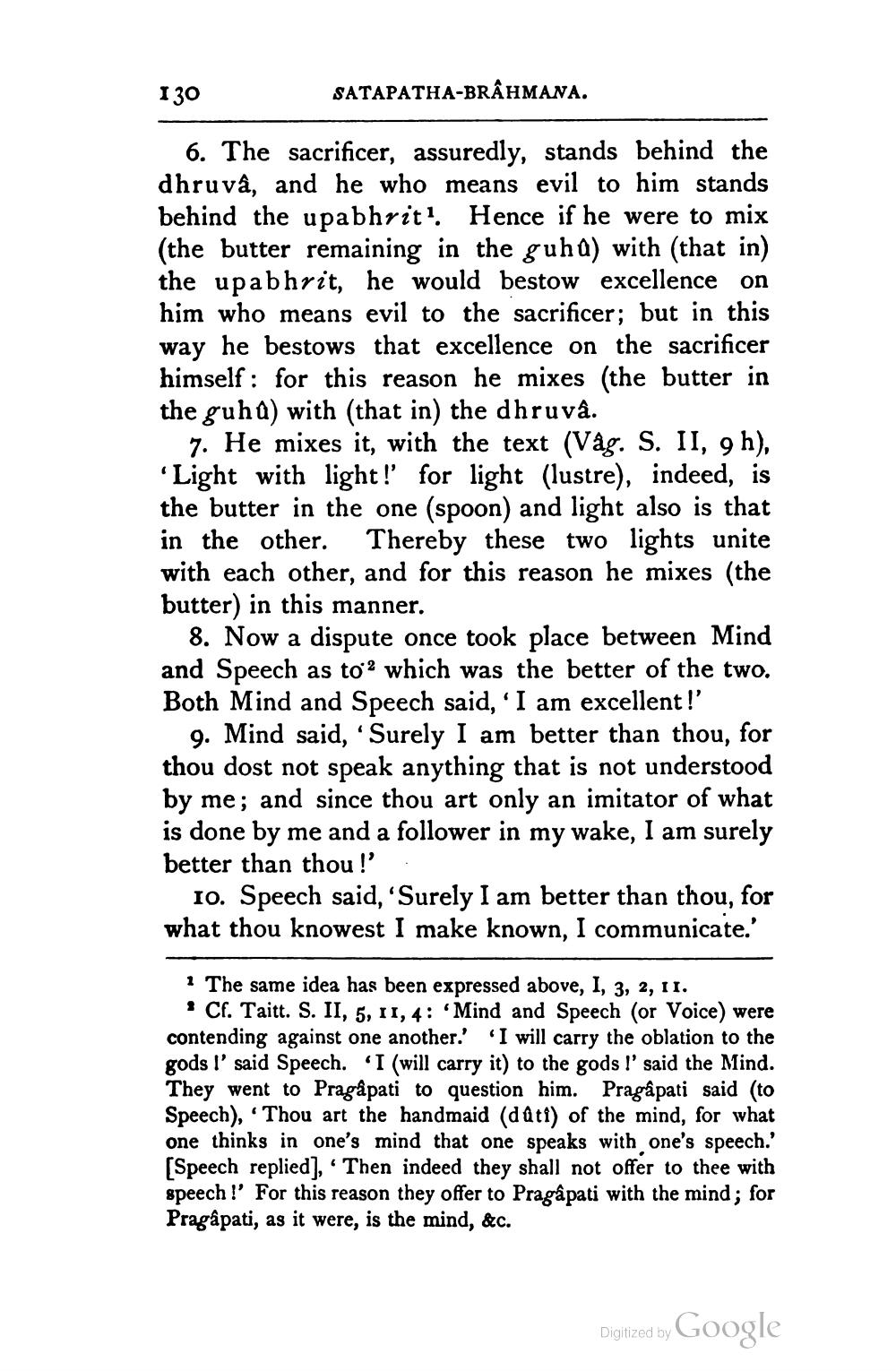________________
I 30
SATAPATHA-BRAHMANA.
6. The sacrificer, assuredly, stands behind the dhruvâ, and he who means evil to him stands behind the upabhritt. Hence if he were to mix (the butter remaining in the guha) with (that in) the upabhrit, he would bestow excellence on him who means evil to the sacrificer; but in this way he bestows that excellence on the sacrificer himself: for this reason he mixes (the butter in the guha) with that in) the dhruvâ.
7. He mixes it, with the text (Våg. S. II, 9 h), Light with light!' for light (lustre), indeed, is the butter in the one (spoon) and light also is that in the other. Thereby these two lights unite with each other, and for this reason he mixes (the butter) in this manner.
8. Now a dispute once took place between Mind and Speech as to which was the better of the two. Both Mind and Speech said, 'I am excellent!'
9. Mind said, 'Surely I am better than thou, for thou dost not speak anything that is not understood by me; and since thou art only an imitator of what is done by me and a follower in my wake, I am surely better than thou!'
10. Speech said, 'Surely I am better than thou, for what thou knowest I make known, I communicate.'
1 The same idea has been expressed above, I, 3, 2, 11.
Cf. Taitt. S. II, 5, 11, 4: Mind and Speech (or Voice) were contending against one another.' 'I will carry the oblation to the gods l' said Speech. I will carry it) to the gods !' said the Mind. They went to Pragậpati to question him. Pragâpati said (to Speech), 'Thou art the handmaid (dati) of the mind, for what one thinks in one's mind that one speaks with one's speech.' [Speech replied), · Then indeed they shall not offer to thee with speech !' For this reason they offer to Pragâpati with the mind; for Pragapati, as it were, is the mind, &c.
Digitized by Google
Digitized by




